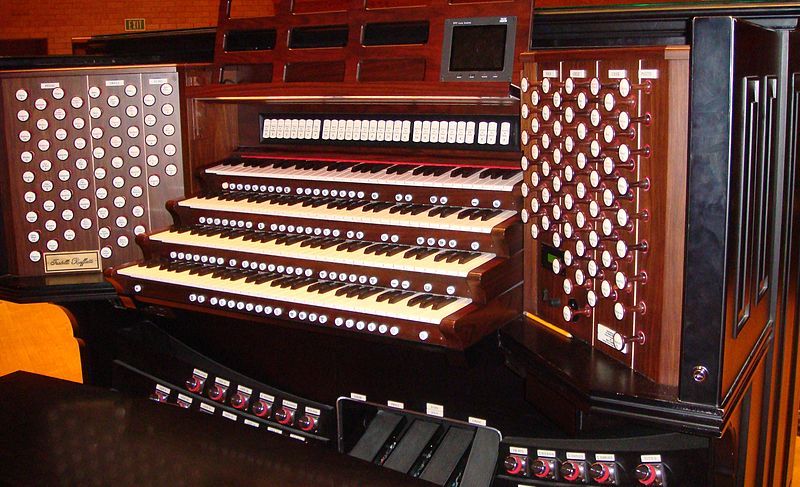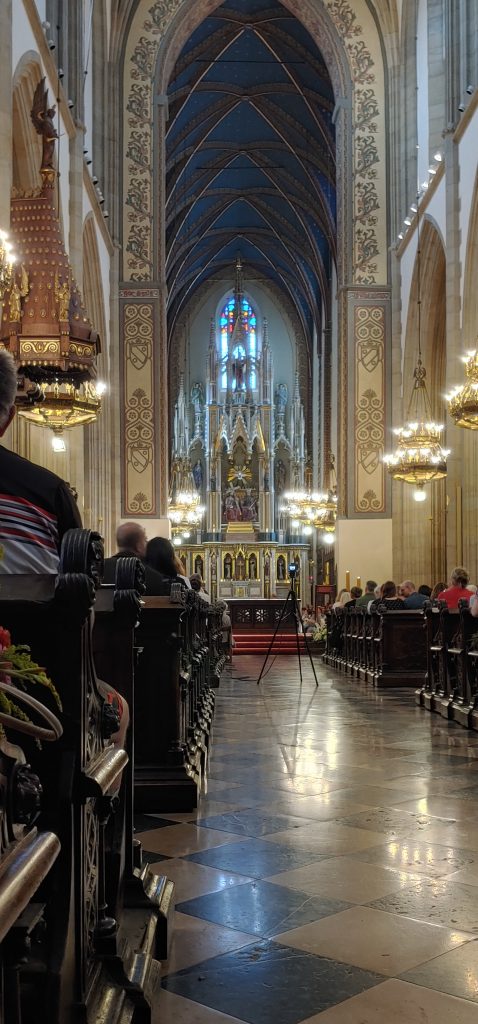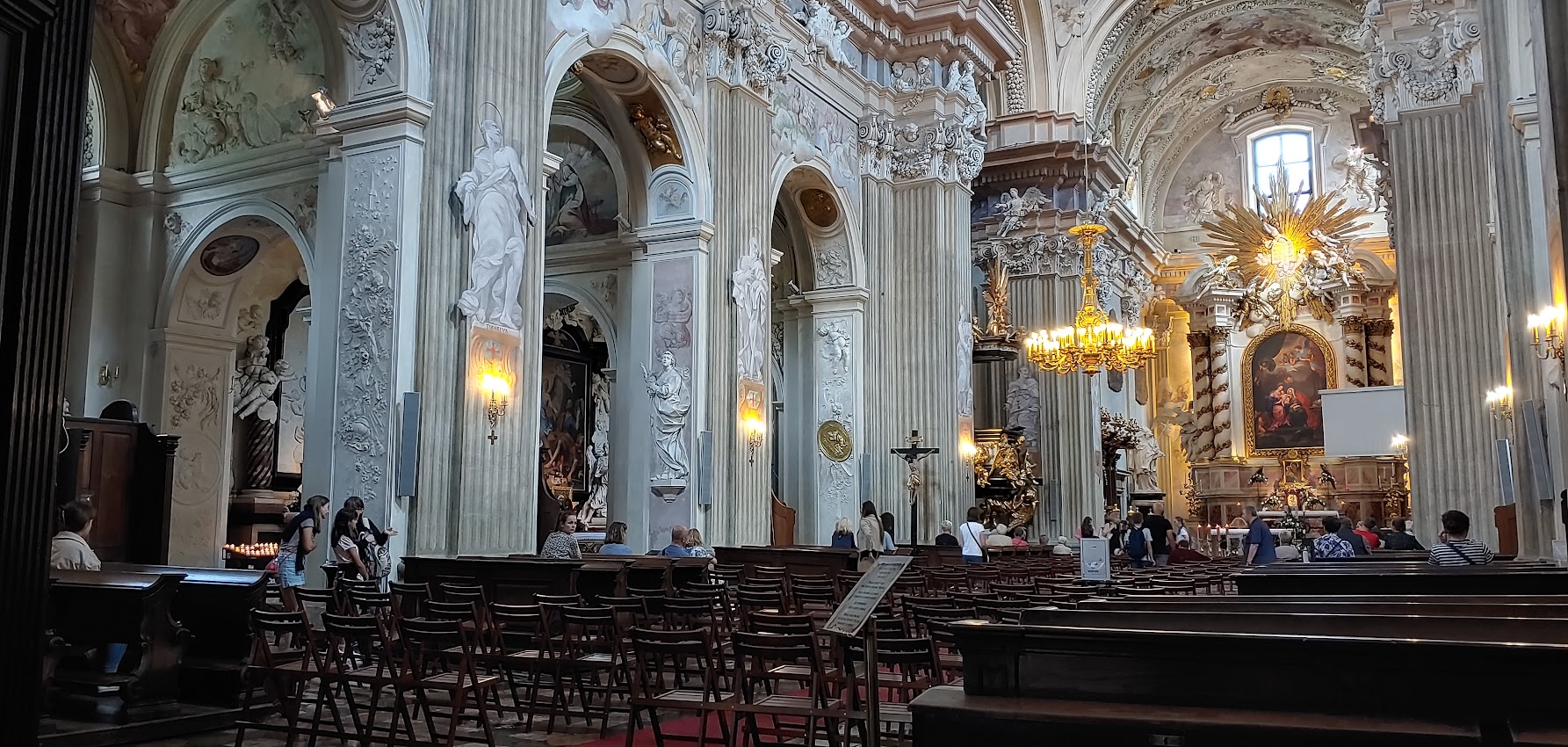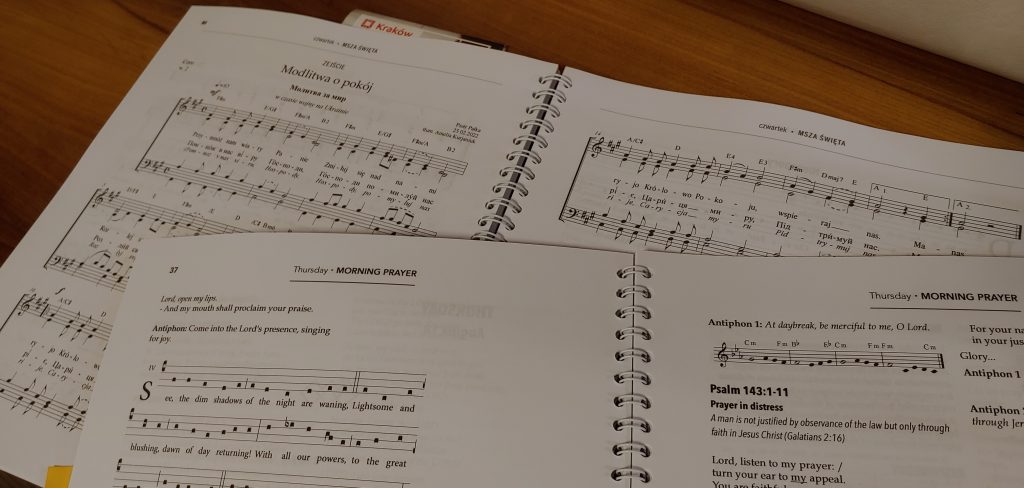Archbishop Alfred Xuereb, the papal nuncio to Korea and Mongolia, gave his remembrance of Pope Benedict XVI in a service at the cathedral in Seoul on January 7. The talk in English is about six minutes long.
The CMAA Fall Workshop: Vespers for September 14
The CMAA Fall Sacred Music Workshop started today in Menlo Park, California. My write-up about it is a work in progress, but includes audio from our sung Vespers for the feast of the Exaltation of the Holy Cross.
Here it is: https://recordings.musicasacra.com/cmaa-recordings/fall-2022-sacred-music-workshop/
The “Extraordinary Music Workshop”: day one
Assumption Day and the Extraordinary Music Workshop offered by the Dominican Fathers in Kraków coincided with a major Dominican celebration of the Polish province’s 800th anniversary. Today’s Mass, therefore, was the first of a triduum leading to the feast of the province’s founder, St. Jacek Odrowąż, better known in English-speaking countries as St. Hyacinth.
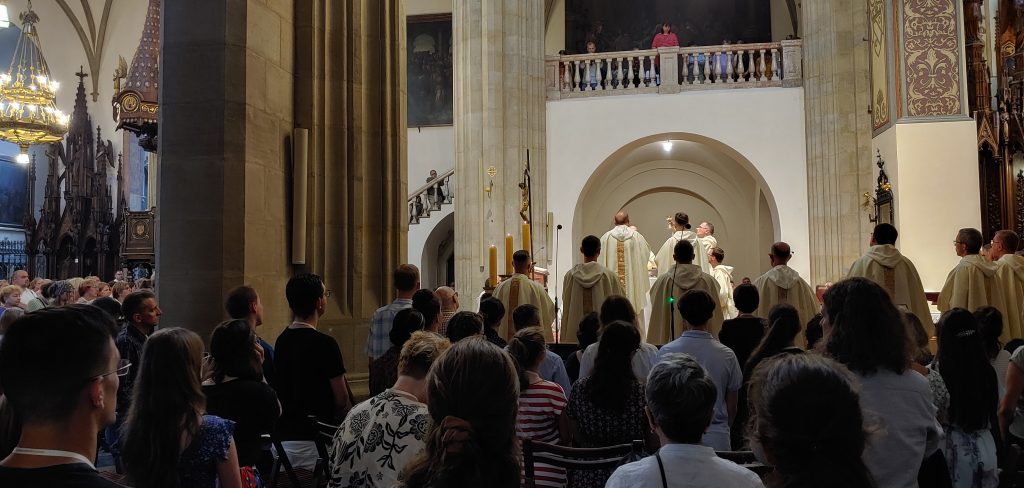
The Mass was offered in Polish, and the church was filled with the generally young participants in the EMW.
Here is a sample of some of the music sung today. I think even the hymns with recently composed melodies have an impressive depth.
- Już się anieli wiesielą (“Let angels rejoice”), a 15th-century hymn in a setting by present-day composer Paweł Bębanek
- Kyrie VIII
- Błogosławiona jesteś, Maryjo (“Blessed are you, O Mary”), a hymn written in 2004 by Fr. W. Kądziela
- the Our Father
- Bądźże pozdrowiona (“Hail, O living Host”), which augments a classic and familiar Christmas refrain with new verses to make it a Eucharistic hymn for any season
The “Extraordinary Music Workshop”: the day before
It is Assumption Eve here in Kraków, and the city is busy with the three-day weekend. For us, there is even a festival of sacred music concerts, Cracovia Sacra, underway tonight, with events starting as late as 10:15 p.m. at the city’s wonderful churches, museums, and religious houses.
On Sunday afternoon, participants checked in for the Dominican Fathers’ week-long sacred music event in Kraków, the “Extraordinary Music Workshop“, and the events of the program start Monday morning: that is, on Assumption Day.
This will be the seventh edition of the event, but the first with a track of sessions conducted in English. I don’t know what the final attendance will be, but a volunteer told me the count of registrations was over 320, a figure that shows the vigorous interest in sacred music in Poland. Most of that attendance by far is by Polish participants, who know that life in Kraków is basically normal despite the war in Ukraine, whose border is 150 miles away.
All that I can show so far to give a hint of the week to come is in a couple of pictures; first, the main image for this post (above), showing the wonderful St. Ann’s University Church, where some of the liturgies will take place; and a snapshot to show the nice work that has gone into preparing the songbooks for the program:
Plus a little sample of the sound of the organ at St. Ann’s, made a few Sundays ago:
The exuberance of Easter
Ecce manu fortis
trivit retinacula mortis;
Plaude, creatura,
barathri iam despice iura.
Ibi confregit
Potentias, arcum, scutum
gladiumque et bellum;
Plaude, creatura,
perierunt vincula dura.
Behold, with the hand of the strong,
he has shredded the bonds of death;
Clap your hands, O creature,
look down now on the laws of the abyss.
There he has smashed
Powers: bow, shield
and sword, and war;
Clap your hands, O creature,
the hard shackles have passed away.
Audi, ecce, unde:
Lectio beati Pauli apostoli ad Corinthios. Fratres, expurgáte vetus ferméntum, ut sitis nova conspérsio, sicut estis ázymi.
Wherefore, hear and behold:
A reading from blessed Paul the Apostle to the Corinthians. Brethren, purge out the old leaven, that you may be the new dough, as you are unleavened.
Cantate Domino canticum novum, quia mirabilia fecit.
Audi, ecce, unde:
Etenim Pascha nostrum immolátus est Christus.
Res mira, res nova, res sancta.
Laudate Dominum, omnes angeli eius,
laudate eum, omnes virtutes eius.
Dragma reperta,
plaude, creatura,
dea sic plaudenda futura.
Sing to the Lord a new song, for he has done wonders.
Wherefore, hear and behold:
For Christ our Passover has been sacrificed.
A marvelous thing, a new thing, a holy thing!
Praise the Lord, all his Angels,
praise him, all his Powers.
As the coin has been found [cf. Luke 15:9],
clap your hands, O creature,
O future goddess to be applauded.
Itaque epulémur: non in ferménto véteri, neque in ferménto malítiae et nequitiæ: sed in ázymis sinceritátis et veritátis.
Therefore let us keep the feast: not in the old leaven, nor in the leaven of malice and iniquity, but in the unleavened bread of sincerity and truth.
(A troped epistle from the 12th century, my translation. Source information is in volume 49 of Hymni inediti. Liturgische Hymne des Mittelalters.)
Gregorian Chants in Chinese
At our sister site New Liturgical Movement, editor Gregory DiPippo writes about finding some adaptations of plainchant in classical Mandarin on the net:
…. these adaptations of the traditional Gregorian chants are the works of Fr Vincent Lebbe (1877-1940), a Belgian priest of the Congregation of the Mission (also known as the Lazarists, from the title of their mother-church in Paris), who dedicated his life to the evangelization of China. Commenting in the forum in which I found them, a native Chinese-speaker notes that they are written in classical Mandarin, which would not necessarily be easily understood by most Chinese people today. This is, of course, fully consonant with the Church’s authentic custom, which has always been to use (or create) an elegant and literarily elevated form of whatever language She prays in.
For example, the Salve Regina (simple tone):
More at NLM.
2022 Organ Scholarships at Christendom College
Dr. Kurt Poterack just let us know about organ scholarships available for students at Christendom College. He writes:
Starting next spring, there will be two scholarships offered as a part of the Pope Benedict XVI Organ Scholarship program: one for an assistant organist and one for a beginning organist. The scholarships will consist, respectively, of $3000 and $1000 per year in tuition reduction and free organ lessons.
Specifics can be found at this link: https://www.christendom.edu/admissions/2019-20-benedict-xvi-organ-scholarship/
Students will need to submit an audition video of one piece by September 3, 2021 and, if selected, will come to campus as a finalist to audition in person on Saturday, October 16. If there are any questions, you should contact Dr. Kurt Poterack at: kpoterack@christendom.edu.
